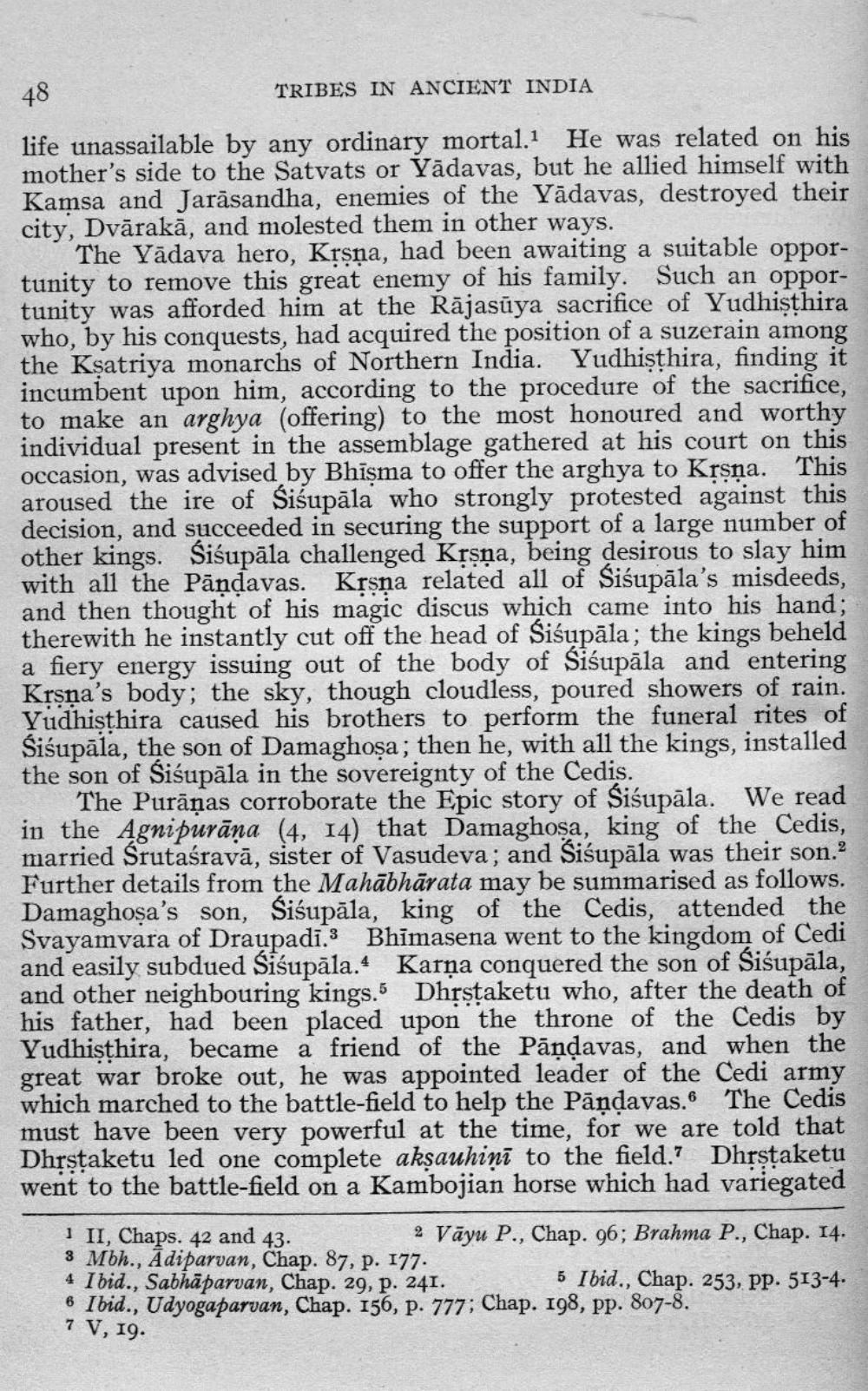________________
48
TRIBES IN ANCIENT INDIA
life unassailable by any ordinary mortal. He was related on his mother's side to the Satvats or Yādavas, but he allied himself with Kamsa and Jarāsandha, enemies of the Yādavas, destroyed their city, Dvārakā, and molested them in other ways.
The Yādava hero, Krsņa, had been awaiting a suitable opportunity to remove this great enemy of his family. Such an opportunity was afforded him at the Rājasūya sacrifice of Yudhisthira who, by his conquests, had acquired the position of a suzerain among the Ksatriya monarchs of Northern India. Yudhisthira, finding it incumbent upon him, according to the procedure of the sacrifice, to make an arghya (offering) to the most honoured and worthy individual present in the assemblage gathered at his court on this occasion, was advised by Bhīşma to offer the arghya to Krsņa. This aroused the ire of Siśupāla who strongly protested against this decision, and succeeded in securing the support of a large number of other kings. Siśupāla challenged Kršņa, being desirous to slay him with all the Pāndavas. Krsna related all of Siśupāla's misdeeds, and then thought of his magic discus which came into his hand; therewith he instantly cut off the head of Siśupāla; the kings beheld a fiery energy issuing out of the body of Siśupāla and entering Krsna's body; the sky, though cloudless, poured showers of rain. Yudhisthira caused his brothers to perform the funeral rites of Siśupāla, the son of Damaghoşa; then he, with all the kings, installed the son of Siśupāla in the sovereignty of the Cedis.
The Purāņas corroborate the Epic story of Siśupāla. We read in the Agnipurāna (4, 14) that Damaghosa, king of the Cedis, married Srutaśravā, sister of Vasudeva; and Siśupāla was their son.2 Further details from the Mahābhārata may be summarised as follows. Damaghosa's son, Siśupāla, king of the Cedis, attended the Svayamvara of Draupadi.3 Bhimasena went to the kingdom of Cedi and easily subdued Siśupāla. Karņa conquered the son of Siśupāla, and other neighbouring kings.5 Dhrstaketu who, after the death of his father, had been placed upon the throne of the Cedis by Yudhisthira, became a friend of the Pāņdavas, and when the great war broke out, he was appointed leader of the Cedi army which marched to the battle-field to help the Pandavas. The Cedis must have been very powerful at the time, for we are told that Dhrstaketu led one complete aksauhinī to the field.? Dhrstaketu went to the battle-field on a Kambojian horse which had variegated 1 II, Chaps. 42 and 43.
2 Vāyu P., Chap. 96; Brahma P., Chap. 14. 3 Mbh., Ādiparvan, Chap. 87, p. 177. 4 Ibid., Sabhāparvan, Chap. 29, p. 241. 5 Ibid., Chap. 253, pp. 513-4. 6 Ibid., Udyogaparvan, Chap. 156, p. 777; Chap. 198, pp. 807-8.
7 V, 19.




